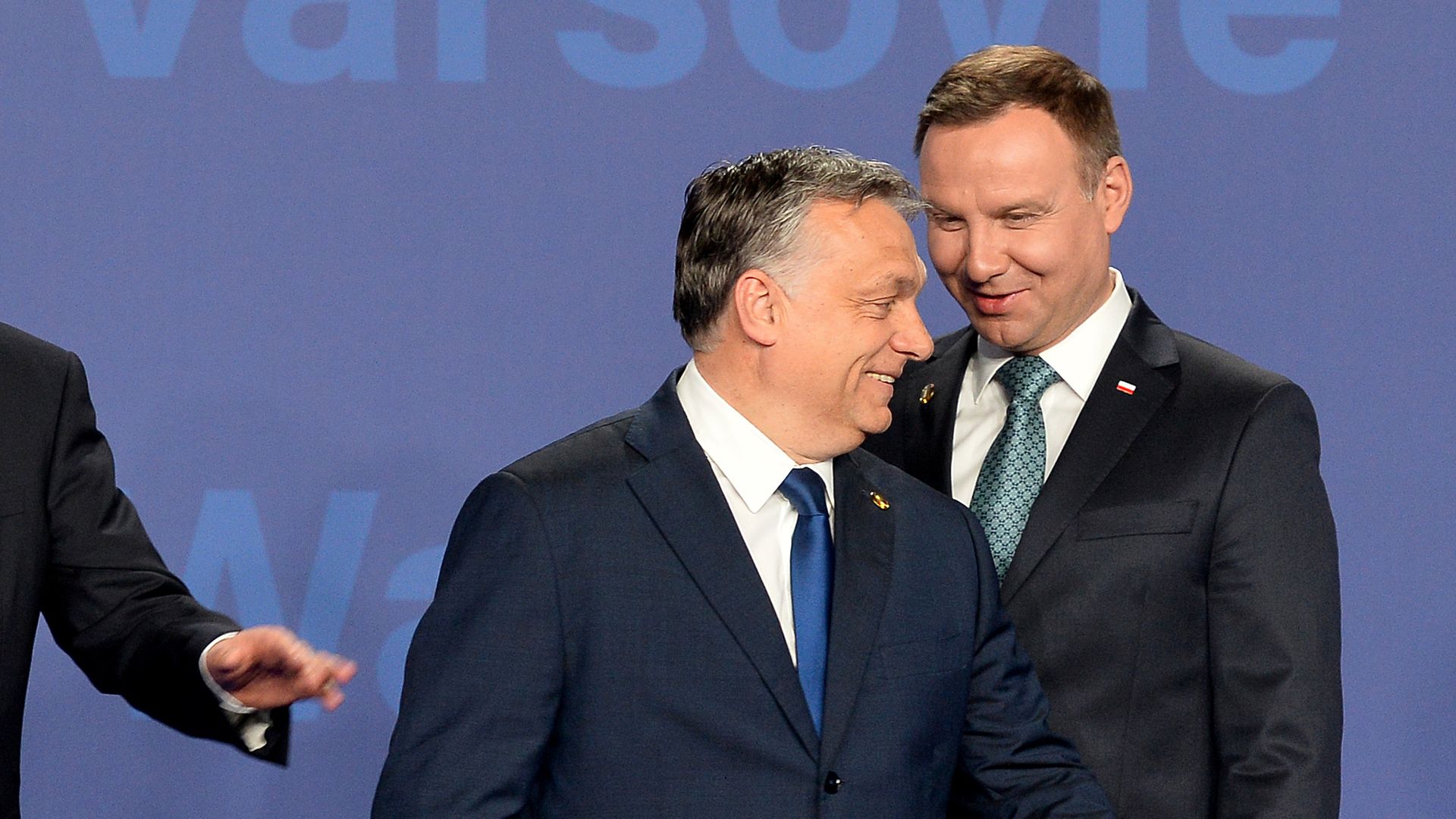EU’s awkward squad: Hungary backs Poland in rule of law dispute with Brussels

Hungary's Prime Minister Viktor Orban (C) and Poland's President Andrzej Duda (R) at a 2016 NATO summit in Warsaw. Photo: JANEK SKARZYNSKI/AFP/Getty Images
In a further sign of the populist governments in Hungary and Poland forming an ‘awkward squad’ within the European Union, the Hungarian parliament on Tuesday overwhelmingly voted in favor of supporting Poland in its fight with Brussels over the rule of law in the country.
Why it matters: This move by the Hungarian parliament, which passed by an overwhelming margin, could scupper the European Commission’s efforts to bring the recalcitrant Poland to heel. Triggering the Article 7 — the unprecedented “nuclear option” that could lead to the loss of Poland’s EU voting rights — requires the support of all the other 27 member states, including Hungary.
The backdrop: Poland and Hungary — and to a lesser extent Central Europe’s other newish EU members, the Czech Republic and Slovakia — all have populist governments that appear willing to defy the EU’s executive body, the European Commission, as it attempts to dictate policies on migration and other contentious issues. The Polish government, led by the fiercely nationalist Law and Justice (PiS) party, has also made radical changes to the media and judiciary, which Brussels claims are eroding the rule of law in the country.
The latest
- Another sign of Poland thumbing its nose at the EU involves logging in the Bialowieza forest, one of Europe’s last ancient forests. Yves Bot, an adviser to Europe’s top court, the European Court of Justice, said on Tuesday that Poland’s decision to step up logging there broke EU law requiring member states to protect the habitats of certain species.
- The Polish government said at the beginning of the year that it had complied with the July 2017 order from the European Court of Justice to halt logging in Bialowieza, though the official forestry data reportedly shows Poland hitting logging quotas far ahead of schedule.
Worth noting: Hungarian Prime Minister Viktor Orban called on Sunday for a global alliance against migration from countries in the Middle East and Africa as his Fidesz party began campaigning for the April 8 parliamentary election. It is expected to win a third consecutive landslide victory, appealing to citizens worried about the effects of globalization and large-scale immigration, despite much-publicized wide-scale corruption by Orban’s inner circle.
